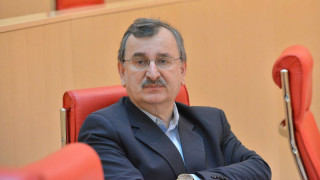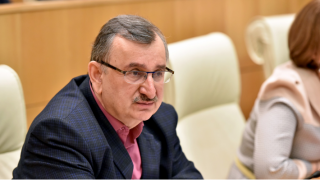Roman Gotsiridze: “It is not the prices that have decreased but price growth rate.”
Verdict: FactCheck concludes that Roman Gotsiridze’s statement is MOSTLY TRUE.
Resume: In 2021, the inflation rate was 9.6% which increased to 11.9% in 2022. In the first quarter of 2023, the inflation rate was 7.6% and in March specifically – 5.3%. Since January 2021 to March 2023, consumer prices increased by 24.3% and the subsistence minimum of a working-age male (from February 2021 to February 2023) rose even more by 30%.
The aggregated price growth rate almost matches with Roman Gotsiridze’s figure, although the MP failed to pay attention to the general situation. In 2021 and particularly in 2022, most countries had their highest inflation rates in decades. However, even not taking into consideration these circumstances, the MP is right when he states that the decreased inflation growth rate is a decrease in the price growth rate, in part referring to medications. Medicine imported from Turkey has become cheaper whilst the cost of painkillers has surged by 56% as compared to March 2020. Therefore, FactCheck concludes that Roman Gotsiridze’s statement is MOSTLY TRUE.
Analysis
On 4 April 2023, during his speech at the plenary session of the Parliament of Georgia, former UNM MP, Roman Gotsiridze, spoke about economic issues and stated that it is a decrease in the consumer price growth and not in consumer prices. In particular, he stated (from 37:46): “You also take pride in the fact that inflation is 5.3% whilst prices have increased. Prices increased by 15% in 2021 and this was the highest growth among 17 countries and it increased a further 10% in 2022 which is 25% in total. When already increased prices grow by an additional 5%, this constitutes massive growth. Therefore, consumer prices did not go down but the price growth rate decreased and, therefore, stop using demagoguery to deceive the population, similar to telling lies about a 70% decrease in the prices of medication.”
Under the Georgian Dream’s rule up until 2021, the inflation rate was still kept within more or less moderate margins despite a reduction in the economic growth rate and the depreciation of the national currency. The highest inflation rate at 6% was registered in 2017 when excise tax doubled instead abolishing the tax on reinvested profits. In 2020, it was the drop in the prices of fuel that stopped the consumer price growth rate at 5.2%.
Graph 1: Inflation Rate in Georgia

Source: World Bank
In 2021, Georgia’s average annual inflation rate reached 9.6% which is a record-high figure since 2008. In 2022, the record was broken because consumer prices never increased by 11.9% from 1999.
In December 2021 and January 2022, the inflation rate rose to 13.9%. The relatively longer downward curve starts from October 2022 and the annual inflation rate returned to a single-digit figure in December of the same year and for the first time since July 2021.
Prices on different products increase with different percentages. Inflation does not take into consideration the change of prices on all products. The consumer basket, which the National Statistics Service of Georgia studies, consists of 305 different items categorised into 12 groups of goods. Prices are monitored from day ten to day 20 of each month in six cities (Tbilisi, Kutaisi, Batumi, Gori, Telavi and Zugdidi).
Each group of goods has its own weight in the consumer basket that shows an averaged figure and individually may show a strong difference. For instance, the weighted share of food and non-alcoholic beverages is 33.1%. A socially vulnerable person spends a higher share if his low income on food whereas a rich person has lesser food expenditures. The share of healthcare is assessed to be 9.5% and this, too, can be different because one person may spend GEL 0 on healthcare for a month whilst another may have to take a loan. According to the National Statistics Office of Georgia’s personal inflation calculator, it is possible to calculate individual inflation with relatively better accuracy.
Although the inflation rate indeed decreased to 5.3% in March 2023, prices on food and non-alcoholic beverages still increased by 11.8%; in particular, the prices for vegetables and melons increased by 28.8%, the prices for bread and bakery products increased by 16.8% and the prices for dairy increased by 13.6%. This dynamic further aggravated the situation of families which already experience economic hardships.
The annual inflation rate in February 2023 reached 8.1% whilst the subsistence minimum of a working-age male in the same months increased by 10.9% from GEL 231 to GEL 256. In a wider period of time, this difference becomes even more evident. In a two-year period from February 2021 to February 2023, consumer prices increased by 24.3% in total whilst the subsistence minimum increased by 30%.
The consumer basket encompasses two groups of medications – painkillers and vasodilators. Prices for former increased by 11.3% in the last year and prices for the latter decreased by 29.5%. However, the prices for same vasodilator medications were 26.6% more expensive in March 2021 as compared to March 2020 whilst they were 1.85% more expensive in March 2022. In fact, the prices for vasodilators decreased by 9.1% as compared to March 2020 and the prices for painkillers went up by 56% in the same period.
Of note is that because of the disruption of supply chains in 2021-2022, on the one hand, and the rising prices from energy carriers, on the other hand, the inflation rate increased considerably in the absolute majority of countries. According to the International Monetary Fund’s report, the global inflation rate was 3.5% in 2019 and it decreased to 3.2% in 2020 whereas it increased to 4.7% in 2021 and to 8.8% in 2022. The estimated global inflation rate for 2023 is at 6.5%.
It is unclear which 17 countries Roman Gotsiridze was referring to during his speech. The International Monetary Fund assesses Georgia in a group of seven other countries and the World Bank in a group of another 24. As reported by the World Bank itself, Georgia was ranked 21st in terms of the inflation rate in 2021 which can be considered to be a negative indicator even in light of the globally deteriorated situation.
In his speech, Roman Gotsiridze did not speak about other countries within the context of inflation which complicates the understanding of the full picture whilst his figures are largely accurate in the case of Georgia. It is also true that the price growth rate decreased and not the prices themselves. FactCheck concludes that the MP’s statement is MOSTLY TRUE.








